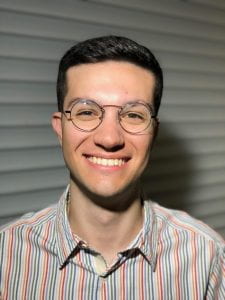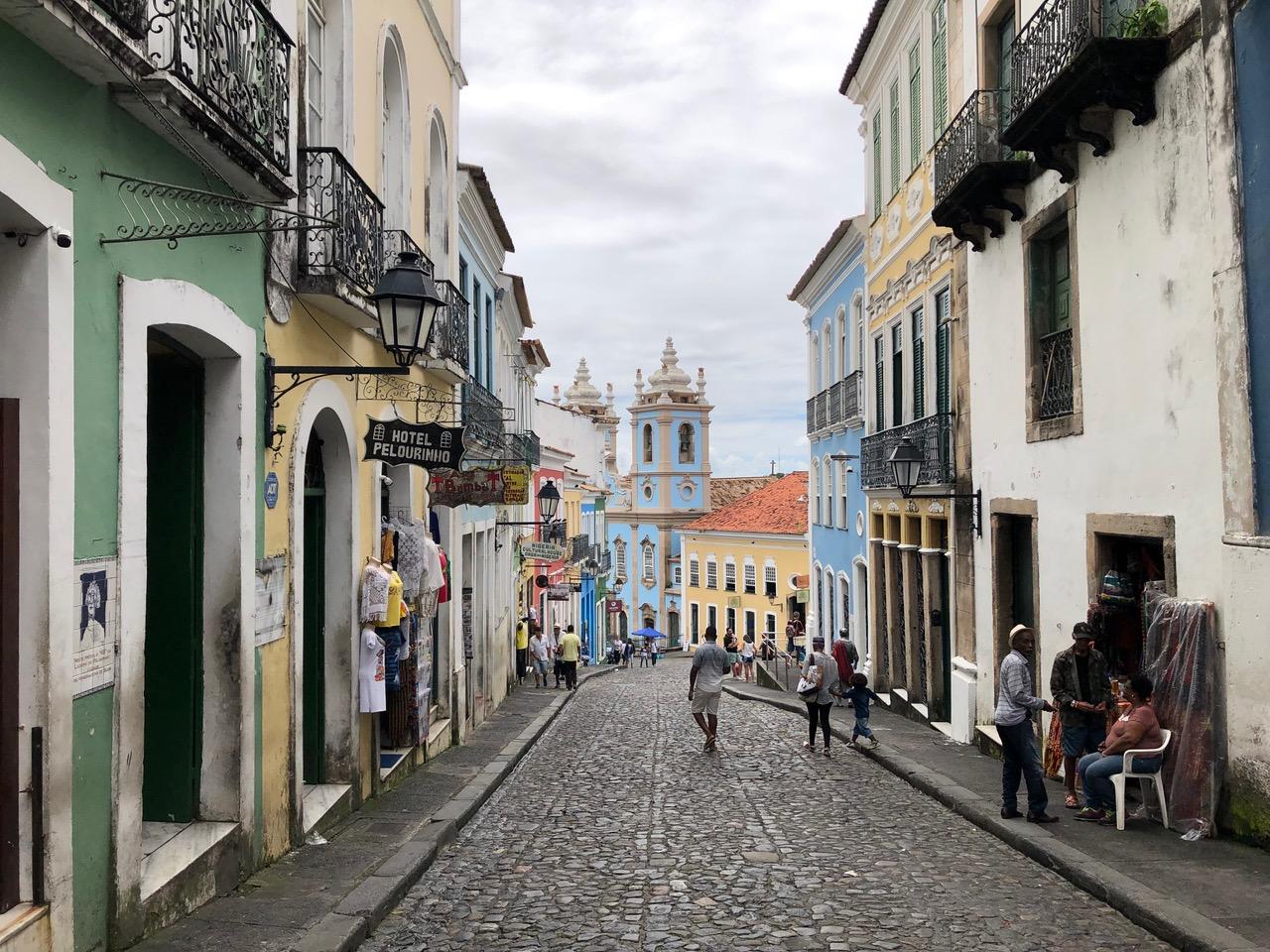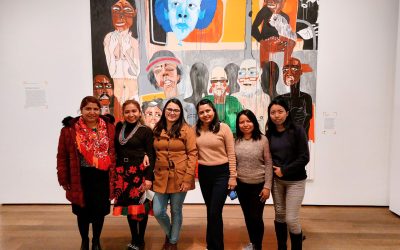
About the Author
Arthur Schott Lopes AB ’19 concentrated in History with a secondary in the Classics and a language citation in German. A native Brazilian, Arthur is starting a Ph.D. in Latin American history at the University of Chicago in October. His senior thesis at Harvard, A Scientific Myth: Gilberto Freyre’s Casa-Grande & Senzalaand Luso-Brazilian Nationalism, 1902-1933, was the recipient of the 2019 Kenneth Maxwell Senior Thesis Prize in Brazilian Studies.
Self-Evident Truths
When I was in fifth grade, I remember reading a short piece by Brazilian humorist Luis Fernando Verissimo about an untranslatable Portuguese expression. In the essay, Verissimo narrates the quandary in which he finds himself when an American friend asks him to explain the gnarly idiom. As the American presses on, Verissimo thinks about retorting, “What about the race problem in America?” It took me years to get the joke, but now it seems simple enough to explain: just as it appeared impossible to the American that we Brazilians could live with an illogical language, the state of race relations in America was incomprehensible to us. And why?
Growing up in Brazil, we are all taught—or implicitly conditioned, I should say, that no elementary school teacher ever admonished me not to comment or notice the color of someone’s skin—to ignore race from a very early age. Brazil was supposed to be a melting pot where harmony, comity, and love—both physical and metaphysical—thrived over racial tensions.

Interracial unions from the dawn of colonization meant that skin color existed not as a binary, but in a spectrum. Segregation was never the law of the land; if it had been attempted, it would have been impossible to enforce. Ultra aequinoxialem non peccari: there is no sin below the Equator. God is Brazilian, we tell ourselves. This tropical orgy, this “spectacle of the races,” as Brazilian anthropologist Lilia Moritz Schwarcz has put it, tore down every wall between white, black and indigenous since Portuguese captain Pedro Álvares Cabral landed in Bahia in April 1500.
In our vision of ourselves, these truths are self-evident—self-evident enough that, if someone had told me on my first day at Harvard that my thesis would end up being about race and Brazilian nationalism, I would have laughed them off. I had not lived in Brazil since I was fourteen, and I had no pretension to study a country whose history and society felt so familiar and easy to explain. So easy, in fact, that I sometimes took an almost perverse pride in lecturing my American friends about the way my country had dealt with a problem that, in America, seemed unsolvable.
During my first year of college, I answered American chauvinism with an equally blind national pride: like Verissimo, I called up America’s hellish racial landscape whenever Americans let their national hubris run amok. There was racism in Brazil, I conceded, but it was not like the racism in America. When Donald Trump was elected president in November 2016, I insisted that a similar phenomenon would never happen in Brazil. How the tables have turned.
I wish I could sum up my conversion to Brazilian history in one short, elegant sentence, but it suffices to say that it turns out that Brazil is not easy to explain. In the spring of 2016, as I wrapped up freshman year thinking about concentrating in the Classics, President Dilma Rousseff was impeached in a process so chaotic that the Brazilian left called it a legislative coup. The legislative session that removed Dilma from office—which I stayed up to watch live, to the detriment of my Latin midterm grade—presented me with a spectacle that quickly devolved from the bizarre to the sinister. As each representative went up to the microphone to cast their vote, a little-known Rio de Janeiro congressman, Jair Bolsonaro, dedicated his vote to impeach Rousseff to Brilhante Ustra, the military officer who had tortured her during the Brazilian military dictatorship of 1964-1985. God did not seem so Brazilian anymore.
Suddenly, the stable, prosperous country of my childhood was turned upside down. In the months that followed—months that also saw Brexit and Trump’s rise—Brazil went from what some had seen as the decade’s greatest success story to its greatest disappointment. As the economy tumbled and hordes of Brazilian politicians and businessmen were arrested in what some now hail as the largest corruption scandal in human history, I began to follow the news from home more assiduously than I had in years.
Brazil was not only hard to explain; it did not feel familiar anymore. Gazing at it from abroad—from America and its racial and political reality—it did not look like the paradise I had learned about in elementary school. I began to take Brazilian history classes my sophomore spring after declaring the Classics in the fall. As I read about the horrors of Brazilian slavery in the works of Brazilian novelist Machado de Assis—and the white élite’s effort to make slavery invisible while stretching its inhumane brutality over millions of Africans and Afro-Brazilians until 1888—it was as if all the sins below the Equator had merely been swept under a rug and dragged surreptitiously out of the room. God was definitely not Brazilian.
Sophomore spring saw me fall in love with Brazilian history and political theory, and I switched my concentration accordingly. By the time junior fall began, I was a history concentrator enrolled in an independent study about Brazilian sociology and literature in the 1930s. That decade saw dictator Getúlio Vargas’ attempt to uproot Brazil’s agricultural economy and turn the country from a coffee monoculture into an industrial superpower. Gone were Machado’s brooding slavocrat élites and their oligarchical progeny: Vargas’ Brazil was supposed to be a modern state in which field hands flocked to ever larger cities to work in brand new factories.
This complete social, political, and economic upheaval inspired a generation of Brazilian intellectuals, even giving rise to new literary genres. One such genre was called interpretação do Brasil—so-called “essays” stretching for hundreds of pages that marshaled the newest trends in Western social science to try to explain Brazil’s society, culture, and history. Though the syllabus I had come up with for my independent study consisted mostly of 1930s novels, it did include two interpretações do Brasil: Sérgio Buarque de Holanda’s Raízes do Brasil and Gilberto Freyre’s Casa-Grande & Senzala. I read the first during the summer and was thrilled to explore Buarque’s intellectual ties to Max Weber. (I took a graduate seminar focusing exclusively on Weber’s political theory that same fall.) But then I began to flip through Freyre.

Raízes do Brasil read like Weber; Buarque had spent years in Germany, after all. His style was elegant, but it was definitely embedded in the social scientific tradition. Casa-Grande & Senzala, on the other hand, read like a novel. As I would later find out, both Freyre’s admirers and critics have pointed out that his style blurred the boundaries between social science and literature: it was impressionistic, novelesque—and novela-esque, too, according to Brazil’s former president (and world-renowned sociologist) Fernando Henrique Cardoso. The 500-page sociological tome, it turned out, was a page-turner.
But Freyre’s classic was not only entertaining: it was shocking. In Freyre’s account of Brazil’s colonial years—his epic, periphrastic descriptions of the patriarchal relationship between masters and slaves in the 17th and 18th centuries—I saw the Brazil of today. Slavery had been abolished, but that had not changed the paradoxical personalism of the relationships between employers and employees, between patroas and empregadas. I caught myself thinking of my own childhood, of the maid and the cook that had seen me grow up just like my own parents—not romantically, as Freyre has been heavily criticized for, but in horror. The people whom Freyre described might be dead, but their sociological types were more alive than ever. Patriarchalism—and my role in it—hit me right in the face.
Casa-Grande & Senzala made me reckon with my own past, but it did more than that. The patriarchal system Freyre described was dependent on race—on the enslavement of black Africans merely because of the color of their skin. Brazil’s modern patriarchalism might not be completely race-dependent anymore, but perhaps it wasn’t as racially blind as I had been led to believe my whole life. When I went back to Brazil for Christmas in 2017, I saw race in my country for the first time—not merely as skin color, but as a social category that conveyed much more information about someone than we, race-blind Brazilians, would care to admit. I tried to breach the topic with my parents, but they were confused: lost in their utopian racial paradise, they did not understand race like I did anymore.
I spent all of junior spring working on Freyre’s later writings about the Portuguese empire, but all of the discoveries from the fall kept pulsating at the back of my mind. They followed me all summer while I researched Freyre’s political theory of empire in Lisbon and in his native Recife. In the end, I abandoned that thesis project to dedicate my thesis to Casa-Grande & Senzala and how it had engendered the twisted vision we had of ourselves as a country. That work had made me see race, but many have argued that its intention was the exact opposite. Freyre’s masterpiece and its account of the interracial relationships between masters and slaves—an account that blends science and myth in its pursuit of a theory of harmonious multiracial nationality—is where the supposed truth of our racial blindness became self-evident. My thesis, which I titled A Scientific Myth, sought to investigate how and whyFreyre had spun a believable racial paradise out of our violent colonial past.

It turns out I had been onto something when I noticed that Freyre’s magnum opus read like a novel. A large portion of my thesis tried to cast Casa-Grande & Senzala not as a social scientific essay, but as a piece of literary rhetoric that used scientific language to construct a multiracial Brazilian nationality at a time when the very concept of the nation was inextricably tied to white supremacy. The myth was written as science to read as a seductive truth.
The issue of nationalism and white supremacy also gets us to why Freyre composed this scientific myth. The world of the early 20th century was a world of white imperial nations and non-white colonies—a world in which Brazil and its mixed-race population would always be regarded as less than the great powers of the time. In dismissing race through science, Freyre wanted to convince audiences at home and abroad that Brazil was a full-fledged nation on the world stage—a nation that did not need whiteness to fulfill the Western imperatives of nationhood.
Freyre’s twisting and turning of race was also a twisting and turning of the nation as a concept. My thesis led me to question more than the myths and stories I had been told about my country: it also made me analyze and contest the very idea of the nation as a logical form of political organization. If Freyre’s science of the nation is merely an elaborate work of rhetorical fabrication, where does that leave us today? Brexit, Trump, Bolsonaro—it is no wonder that nationalism has once more raised its ugly head in the era of post-truth. The nation is perhaps the greatest lie of modernity, but it is also the most seductive.
As I sit down to write this short reflection while I prepare to start my Ph.D. in Latin American history at the University of Chicago in a couple of weeks, I feel privileged to have had a college experience that challenged some of my deepest held assumptions about my country, my political beliefs, and myself. In an ever more polarized world in which people only lend credence to what confirms their previously held beliefs, it is the purpose of higher education to encourage students to pursue truth even when the truth is uncomfortable. Dean Rakesh Khurana’s words that Harvard is a transformative experience are often derided as hollow, but I cannot find any other way to describe my academic journey during my four years here. I can only thank the support of the College’s Latin American faculty in guiding me in the pursuit of our university’s motto.
More Student Views
Upending the Archive: Notes from Researching Third World Ties in Brazilian Cinema Novo
I made a movie in Africa because I knew that it was time to break down the self-isolation in which various Third World cinemas exist.
Roots in Rhythm: Exploring Activism in Mapuche Punk Music
Environmental activism meets punk music in the Mapuche community of Chile.
“Summer of Science”: STEM for Mexican Indigenous Women
I have spent the majority of my academic life within the world of Mathematics.




